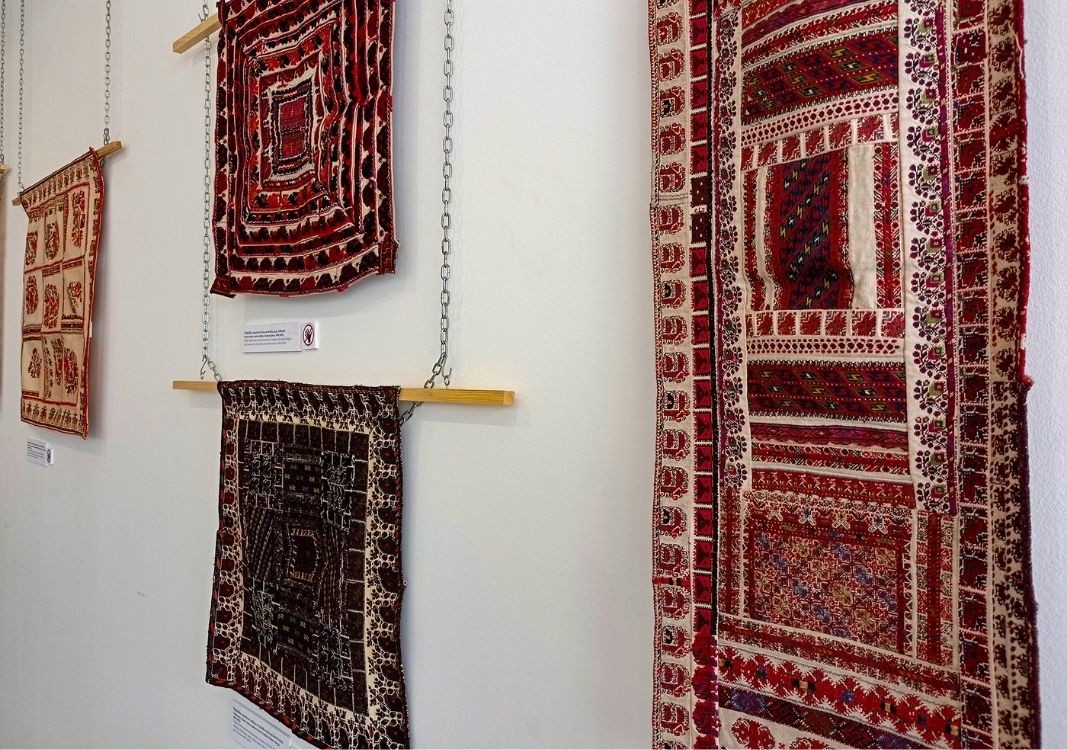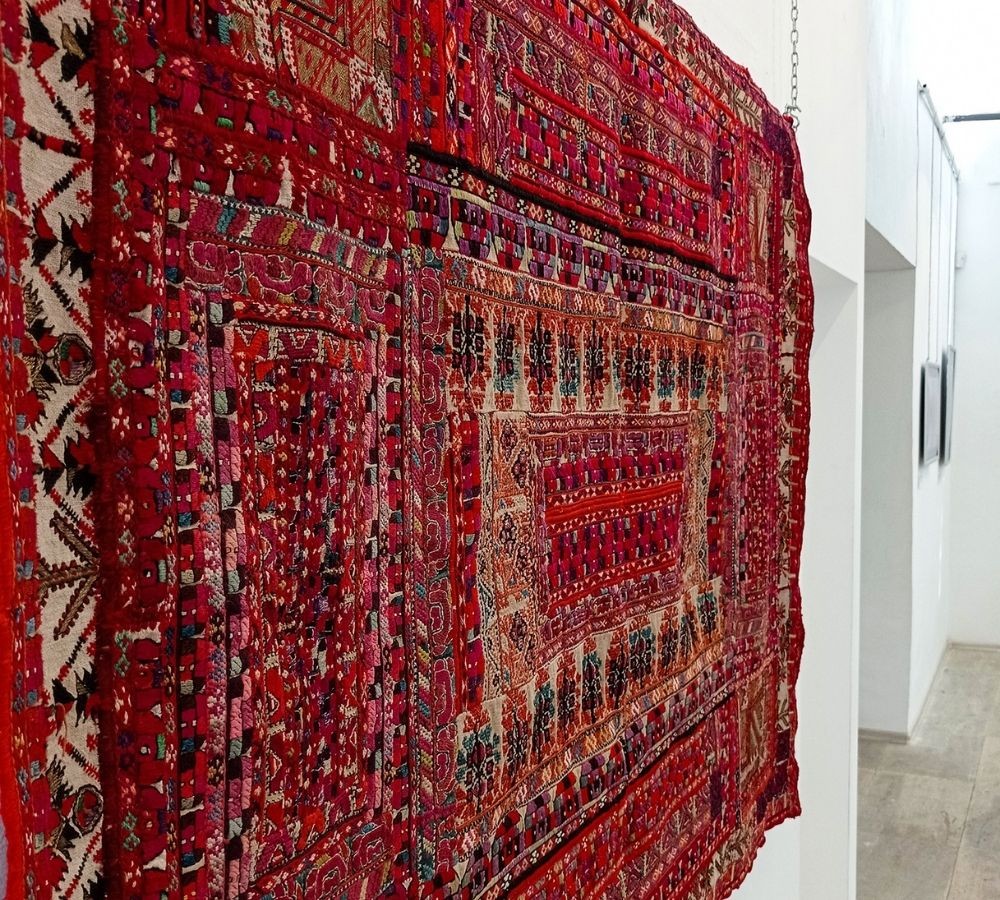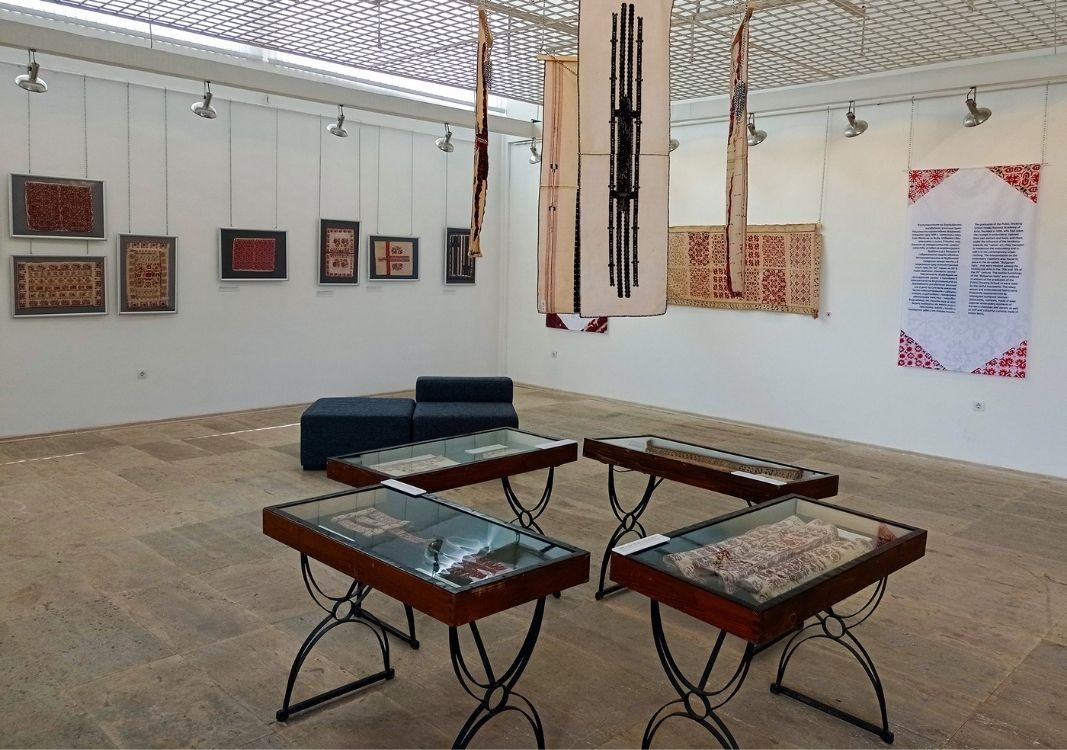In the middle of summer, the mountain resort of Borovets welcomes its guests with its well-marked paths that lead to the secrets of the Rila Mountains. But if you want to combine your mountain vacation with cultural tourism, we recommend visiting the town of Samokov, situated 10 km away from the resort.

A few days ago, an interesting exhibition of the National Museum of History in Sofia opened in the "Prof. Vasil Zahariev" art gallery in Samokov. The exhibition makes visitors acquainted with the colorful world of Bulgarian traditional embroidery. It presents 32 pieces of redesigned textiles from the beginning of the XX century, including tablecloths, pillows, bags and others, characterized by the rich embroidery typical of different ethnographic regions of Bulgaria – Samokov, Dupnitsa, Sofia, Pleven, and the region of Macedonia.
The creation of the so-called redesigned textile on the basis of second-hand elements that were part of authentic folk clothing was part of the European style of Art Nouveau. This trend entered Bulgaria at the beginning of the twentieth century, which is evident in the presented textile works containing original embroidery elements from older times.

Visitors can see tablecloths from Samokov and Dupnitsa. Some of them are related to the family of Hadzhi Valcho from Bansko, who was a benefactor of the Zografski and Hilendarski monasteries. A tablecloth made of 25 sleeves of women's shirts from the Sofia region, which came to the museum from the royal palace, is also very attractive to guests.

The exhibition "Folk Embroidery Art" will stay in the Art Gallery "Prof. Vasil Zahariev" in Samokov until the end of August.
Compiled by: Veneta Nikolova
Photos: National Museum of History
English: Allexander Markov
On 22 November, the Association of Bulgarian Folk Ensembles Abroad (ABFEA) will present its project, 'Online Catalogue of Bulgarian Horo and Other Dances', in three European cities: Lyon, Munich and Copenhagen. 'Our goal is to preserve Bulgarian..
‘The Bulgarian horo is a kind of magic — an enchanted circle that pulses with the unique energy of our spirit, our traditions and our identity,’ says journalist Milena Milotinova, who recently presented her new documentary The Magic of the Bulgarian..
The Eastern Rhodopes come to life in the heart of Sofia – with authentic flavoуrs, music and craftsmanship . Residents of the Bulgaria capital have a chance to immerse themselves in the atmosphere of Momchilgrad Municipality and its cultural and natural..

+359 2 9336 661
